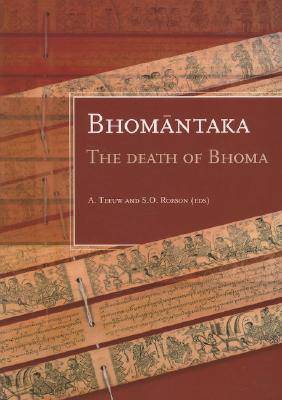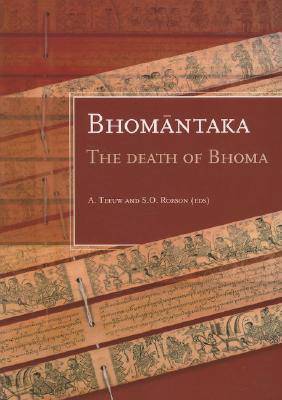
- Afhalen na 1 uur in een winkel met voorraad
- Gratis thuislevering in België vanaf € 30
- Ruim aanbod met 7 miljoen producten
- Afhalen na 1 uur in een winkel met voorraad
- Gratis thuislevering in België vanaf € 30
- Ruim aanbod met 7 miljoen producten
Zoeken
€ 99,45
+ 198 punten
Omschrijving
The Bhomantaka, or the Death of Bhoma, is a wide-ranging tale of the sweet romance of Samba and Yajñawati, of the defeat of the demon Bhoma by King Kresna and his minions in a truly monumental battle, and many more incidents and descriptions, a product of the sophisticated literary tradition of early Java. The poem is written in Old Javanese (composed by an author who does not mention his name or that of his king), in an idiom that presents many difficulties for the modern reader. This book contains an edition of the text, a translation, and an extensive explanatory introduction--enough to make the work accessible--and was produced by a team of two, both senior scholars of Old Javanese and experienced in producing readable English translations.
It will become apparent in the course of reading that there are still numerous philological problems attaching to the text and its interpretation, but on the other hand it is also a fact that it contains many a passage of delightful poetry, philosophical teaching and other cultural information. As a result we get a glimpse of what Java was like perhaps eight and a half centuries ago, and of the thought-world of the Javanese of that age a world where legendary, mythological or divine beings do battle, and kings march out to restore the welfare of the realm.
This publication takes its place in a long line, from the author via the copyists, in Java and in Bali, who faithfully and lovingly transmitted the work, down to the first edition of the text in 1852 and then the first translation in 1946. In this way a literary tradition of great value has been preserved for the future, and the KITLV Press now offers this contribution to coming generations of students of Old Javanese and to scholars of comparative literature around the world.
It will become apparent in the course of reading that there are still numerous philological problems attaching to the text and its interpretation, but on the other hand it is also a fact that it contains many a passage of delightful poetry, philosophical teaching and other cultural information. As a result we get a glimpse of what Java was like perhaps eight and a half centuries ago, and of the thought-world of the Javanese of that age a world where legendary, mythological or divine beings do battle, and kings march out to restore the welfare of the realm.
This publication takes its place in a long line, from the author via the copyists, in Java and in Bali, who faithfully and lovingly transmitted the work, down to the first edition of the text in 1852 and then the first translation in 1946. In this way a literary tradition of great value has been preserved for the future, and the KITLV Press now offers this contribution to coming generations of students of Old Javanese and to scholars of comparative literature around the world.
Specificaties
Betrokkenen
- Uitgeverij:
Inhoud
- Aantal bladzijden:
- 695
- Taal:
- Engels
- Reeks:
- Reeksnummer:
- nr. 32
Eigenschappen
- Productcode (EAN):
- 9789067182539
- Verschijningsdatum:
- 1/01/2005
- Uitvoering:
- Paperback
- Formaat:
- Trade paperback (VS)
- Afmetingen:
- 162 mm x 238 mm
- Gewicht:
- 1124 g

Alleen bij Standaard Boekhandel
+ 198 punten op je klantenkaart van Standaard Boekhandel
Beoordelingen
We publiceren alleen reviews die voldoen aan de voorwaarden voor reviews. Bekijk onze voorwaarden voor reviews.







